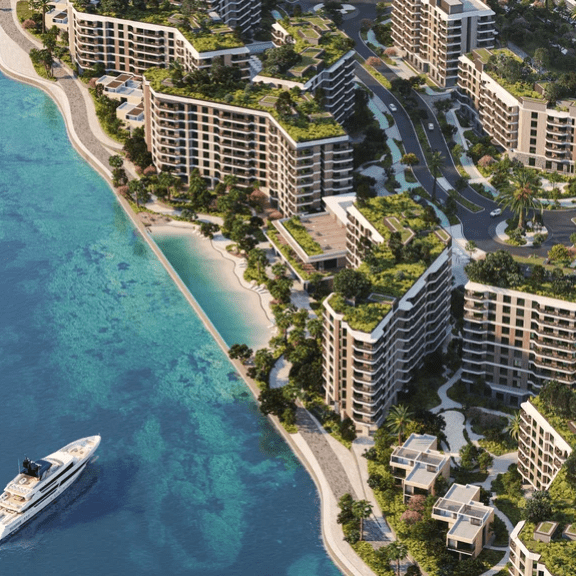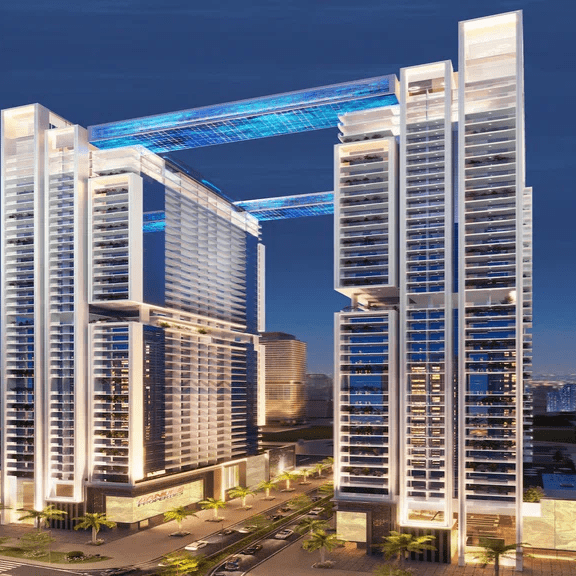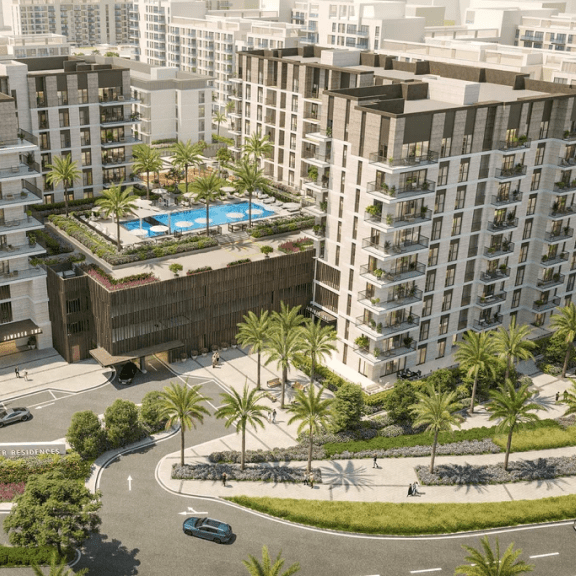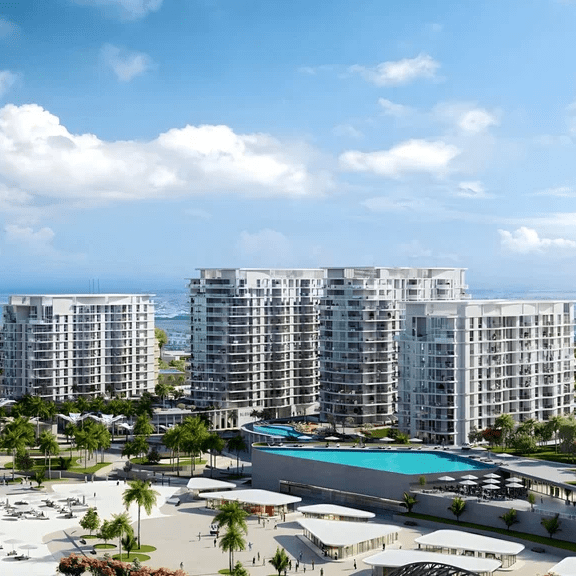Today, Dubai stands as one of the most cosmopolitan cities in the world, with approximately 80% of its population comprising expatriates from diverse backgrounds such as India, Russia, Great Britain, and various European and Asian countries. The city entices individuals with its exceptional quality of life and promising business prospects. However, it is important to acknowledge that no place on Earth can cater perfectly to everyone's preferences. With that in mind, here is our compilation of the top six advantages and the top six disadvantages of residing in Dubai.
Pros
Standard of Living and Opportunities
Presently, the UAE boasts one of the most robust economies in the world. Its enduring prosperity is supported by abundant oil reserves, yet the Emirates consistently strive for progress by diversifying their economic landscape. Year after year, the country attracts investments from across the globe and demonstrates remarkable dedication to advancing industries such as real estate, science, and digital technologies.
New buildings in the UAE
Qualified professionals are highly regarded in the UAE, with competitive salaries offered in various fields. For instance, engineers can earn between 19,000 to 35,000 AED ($5,100 to $9,500) per month, while coders typically start at 20,000 AED ($5,000). Bank specialists can expect salaries ranging from 18,000 to 29,000 AED ($4,900 to $7,800). Moreover, many prominent companies provide expatriate employees with additional benefits such as company cars, medical insurance, and assistance with rent and airfare for trips to their home countries.
The UAE is renowned for its favourable tax system. Non-citizens of the country are exempt from income tax, as well as taxes on profits, inheritance, luxury, and certain others. Another notable advantage is the country's robust banking sector. Despite the challenges posed by the COVID-19 pandemic in 2021, the 10 largest banks in the UAE reported a 5% increase in assets, demonstrating stability and reliability. This provides assurance regarding the safety of your savings.
Safety
In 2021, the United Arab Emirates was ranked as the world's second-safest country, with Iceland claiming the top spot. Serious crimes are exceptionally rare in the UAE, and most incidents involve thefts in less affluent areas. The city boasts a significant number of police officers who diligently patrol the streets day and night, ensuring that residents can safely walk or use taxis at any hour.
Photo: wirestock (Freepik)
To uphold a high level of security in Dubai, the city has installed over 300,000 cameras throughout its streets and buildings. These surveillance systems utilise artificial intelligence, and drones are deployed for patrolling streets and public areas.
Accessible Communication
The official language in the UAE is Arabic, but Dubai is a cosmopolitan city with a large expat population, making English the de facto second language of communication. Fluency in English is common among employees of service providers, banks, and government agencies. Menus in restaurants, road signs, telephone directories, and transport schedules are available in both languages. Additionally, many companies conduct their paperwork in English. Therefore, being proficient in English is generally sufficient for life in Dubai.
Entertainment Suited to Your Tastes
Dubai offers a wide array of leisure and entertainment options to suit every taste. Families with children can embark on thrilling adventures at IMG Worlds of Adventure and LEGOland theme parks, or make a splash at Aquaventure, the world's largest water park, featuring an abundance of rides, including slides through shark lagoons. For thrill-seekers, skydiving over Palm Jumeirah Island or exploring an artificial underwater city through scuba diving are sure to provide an adrenaline rush.
Dubai Opera. Photo: Max Bovkun (Unsplash)
In 2016, Dubai welcomed the grand opening of Dubai Opera, a premier destination for performing arts located in the city centre. This magnificent venue hosts captivating theatrical shows, including plays, opera performances, ballets, as well as concerts, conferences, and exhibitions. Additionally, Dubai boasts an array of museums, ranging from the historical exhibition at Al Fahidi Fort to the internationally acclaimed Museum of the Future, known for its stunning exhibits. Adding to its record-breaking reputation, Dubai is also home to some of the world's highest observation decks, such as the one in the iconic Burj Khalifa skyscraper and the mesmerising Dubai Frame.
Finally, Dubai offers a vibrant nightlife scene with a multitude of clubs, bars, and restaurants catering to various price ranges. From cosy traditional diners to exquisite gourmet establishments, the city has a diverse culinary landscape to satisfy every palate. Dubai proudly boasts two restaurants holding two Michelin stars and nine one-star establishments, offering exceptional dining experiences. However, it's important to note that the exceptional service and culinary excellence come with a corresponding price tag.
Transportation
The UAE stands as one of the top countries for car owners, offering exceptional infrastructure and services. According to the Annual Report by the World Economic Forum, the country's road network is recognized as the best in the world. Furthermore, Dubai is at the forefront of electric transport development, with the installation of free charging stations for electric vehicles, showcasing its commitment to sustainability and eco-friendly transportation options.
Photo: Freepik
Dubai boasts a well-developed public transportation system that meets high standards of quality and convenience. The unmanned metro system is known for its cleanliness and comfort, offering a seamless commuting experience. With convenient transfers to trams and buses, navigating the city is made even easier for residents and visitors alike.
High-Quality Medicine
In recent years, healthcare in the United Arab Emirates has made significant strides in achieving high-quality standards of treatment and service provision. The UAE government reports the presence of 45 public hospitals across the country, employing 8,322 doctors and 20,480 nurses. This translates to a ratio of 231 doctors per 100,000 inhabitants, ensuring a robust healthcare workforce to cater to the population's needs.
In Dubai, being a populous and tourist city, the private sector takes precedence in healthcare provision, with 84% of medical institutions being privately owned, while the remaining 16% are public. Both public and private clinics in Dubai prioritise the use of state-of-the-art equipment and employ highly qualified specialists who have received their education in Western countries.
Photo: Freepik
The UAE prioritises the quality and availability of pharmaceuticals. Pharmacies in the country offer a wide variety of medicines, ensuring that you won't encounter counterfeit or expired drugs. It's important to note that certain medications like antibiotics, sleeping pills, antidepressants, and others require a prescription. Dubai is home to numerous pharmacies, many of which operate 24/7 without any lunch breaks, providing convenient access to medications at any time.
Medical care in the UAE is provided free of charge for citizens, but expats and tourists are required to pay for their medical services (more details will be discussed below). However, it's worth noting that certain public hospitals in Dubai do not charge for emergency ambulance services in case of emergencies.
Cons
High Prices
Living on a budget in Dubai can be challenging as it is one of the most expensive cities in the UAE. Many working immigrants often find themselves in a situation where their wages are only sufficient to cover basic living expenses. According to Numbeo, the average monthly expenditure for a resident in the emirate, excluding housing rent, is around 3,771 AED ($1,027). For a family of four (excluding housing rent), expenses can average around 13,022 AED ($3,545).
Renting accommodation in Dubai can still be relatively expensive, although it is comparatively lower than popular European capitals like London or Copenhagen. On average, the monthly rent for a one-bedroom flat in Dubai is around 5,215 AED ($1,420), while a three-bedroom flat averages around 9,560 AED ($2,603) per month. Lease contracts typically span a year, although in rare cases, it may be possible to negotiate a six-month advance payment arrangement.




